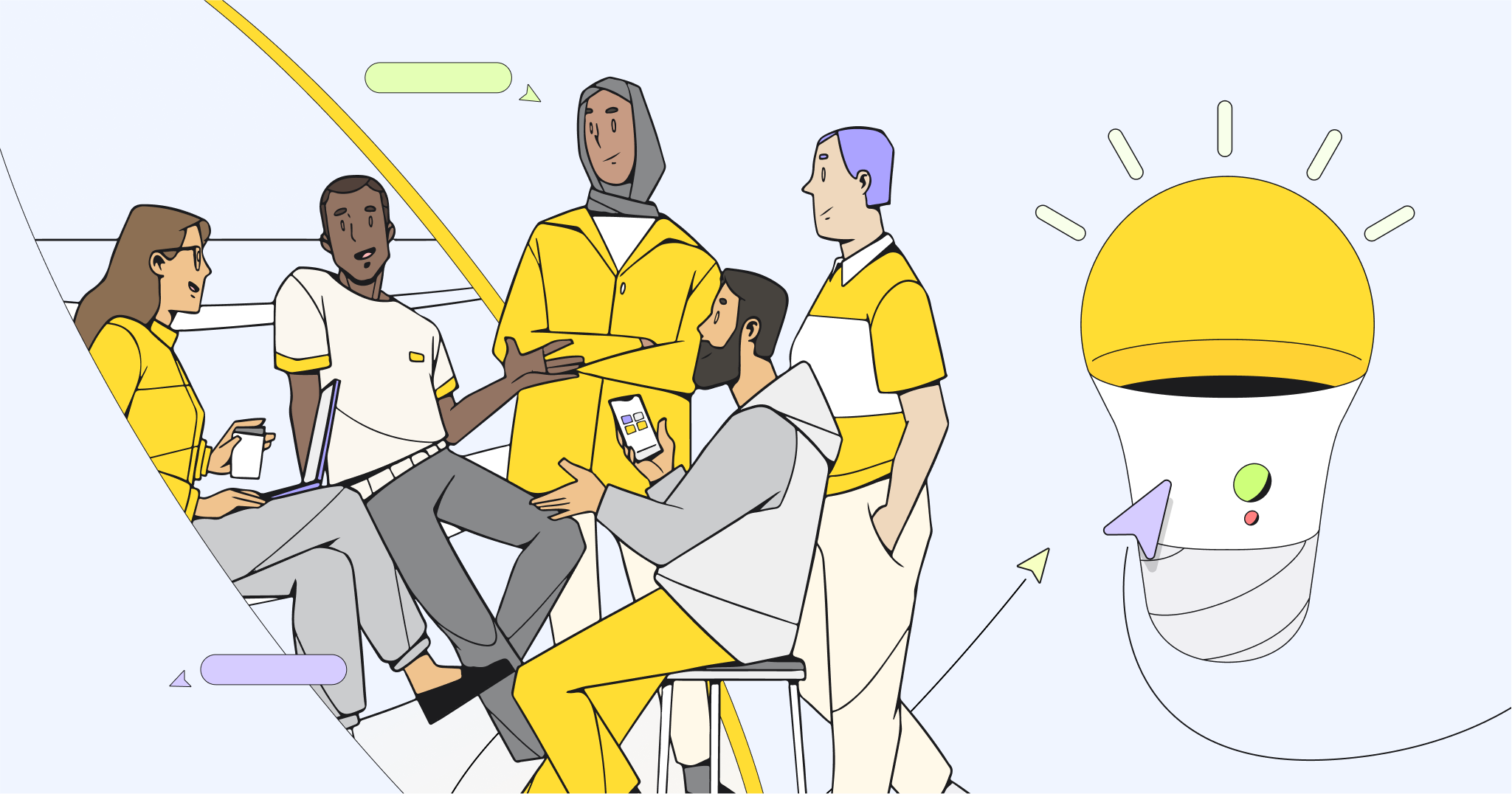How can product teams cut through the noise and focus on what truly matters?
David Pereira, a seasoned product leader, coach, and Miroverse Ambassador, has spent over 15 years exploring that question. With extensive experience across industries, he helps teams streamline their processes and create real value. As CEO and Chief Product Officer of omoqo GmbH, a software company serving the maritime industry, and the author of Untrapping Product Teams, David brings a wealth of practical insights to his work, sharing them through articles, workshops, and popular Miroverse templates. In just the last four years, David has amassed a global readership of more than 10 million people, and 15,000 students have enrolled in his courses.
Below we’ll explore David’s philosophy on product development, particularly his emphasis on the discovery journey: how teams can make sense of a world of challenges and focus on what truly moves the needle.
From engineer to product leader: Discovery as the first step
The discovery journey in product development is all about asking the right questions:
- What’s the problem?
- What do end-users want?
- What opportunities are there to solve these challenges?
David’s career started on a car factory floor in Brazil, where he learned to solve immediate problems as a software engineer.
“I wasn’t just coding,” David says. “I had to understand what the factory employees’ challenges were, what they were trying to achieve, and how to boost efficiency. Everything there was about efficiency.”
This shaped David’s approach to product development, where even today he focuses on simplifying processes to make them accessible and effective.
It was only when David was offered a product management role that he learned an important lesson about output.
At first, David’s focus was on delivery — organizing tasks, managing timelines, and ensuring outputs.
“We delivered a lot until I realized that what we delivered didn’t really create value, because I was really focusing on internal stakeholders,” he explained.
A failed interview later deepened David’s understanding of discovery.
“When they started asking questions about product discovery and outcomes, I had no idea what they were talking about,” he said. “In Portuguese, ‘outcome’ and ‘output’ are the same word, so I didn’t even understand what they meant. That’s when I started to think deeply about what I was missing.”
This realization became a turning point. David’s approach shifted to understanding real user needs, ensuring that every decision and product iteration added genuine value. This is reflected in his Miroverse templates, which serve as a practical toolkit for discovery and prioritizing insights.
LEARN MORE: Don’t leave your assumptions at the door. Bring them to David’s templates like Identifying Assumptions and Assumption Matrix.
Simplifying discovery: The power of templates
As David’s experience in product management grew, so did his desire to simplify the process for others. His Miroverse templates are viewed and used by thousands of product teams around the world and reflect his philosophy of clarity and simplicity.
“In product management, there’s a tendency to add more and more features, but I see a great product as one where you can’t add anything more, and there’s nothing left to remove,” David says. He thinks about the goal, how to get there, then goes back and considers what he can simplify.
David’s most popular Miro template, Now, Next, Later, Trash, helps teams prioritize tasks thanks to a trash column, where they can drop non-viable ideas to avoid endless re-evaluation.
All of his templates are intentionally designed to reduce friction and make complex processes accessible. His advice for managing backlogs, for instance — “Backlog items age like milk, not wine” — provides a relatable reminder to regularly clear outdated items.
“Creating something relatable takes a lot of time,” David said. “If you scare people with complexity, they feel stupid, and they won’t try it. But if they see something and think, ‘I understand this; it’s a piece of cake,’ then they’ll try it out and engage.”
NEED HELP PRIORITIZING? This popular template helps teams categorize work into low effort versus high effort and low value versus and high value classifications.
Finding value and overcoming organizational challenges
David believes that successful product management begins with a relentless focus on discovery. The discovery journey is not just about identifying potential solutions but about uncovering real, often overlooked pain points.
David emphasizes meeting users where they are, solving meaningful problems that justify a product’s existence. For him, discovery is about confronting assumptions and validating them with reality, a step many companies miss.
“Most conversations start with a solution,” David says. “A founder has an idea and thinks it’ll be great. But discovery allows you to pit those ideas against reality before jumping into building.”
Another reason discovery can be challenging is silos. David cautions against the tendency of many organizations to separate discovery and delivery into different teams because it undermines accountability and can create a system of blame if projects fail. This is why his templates bring the work together — unifying the process in a simple way where everyone is involved.
GET DEEPER: Want to master innovation? Start by validating ideas quickly with these tips from product wizard Ash Maurya.
Adaptation over perfection
When teams collaborate over David’s templates, they can use them as adaptable frameworks rather than rigid guides.
“I tell people, don’t let the template limit you,” he says. “Let it be the start. Real learning happens through action and iteration.”
Making innovation easier with Miro
David Pereira’s approach to product management is grounded in discovery and simplicity, empowering teams to uncover genuine user needs and build products with lasting value. His Miroverse templates provide practical starting points. But product development isn’t about exhaustive planning or rigid frameworks. It’s about adaptability, small wins, and making meaningful progress. For David, and thousands of teams who follow his work, this is how innovation happens.




